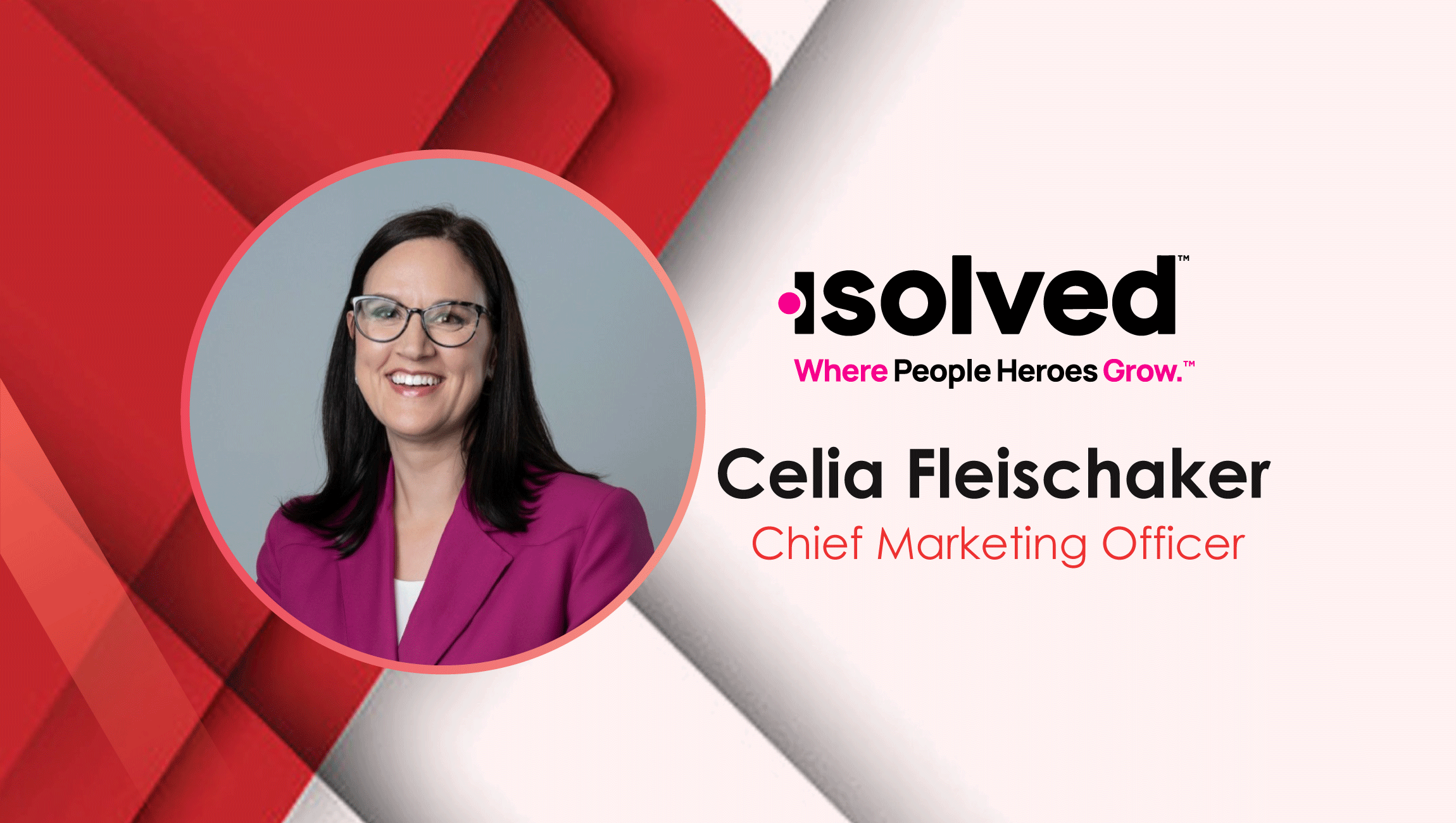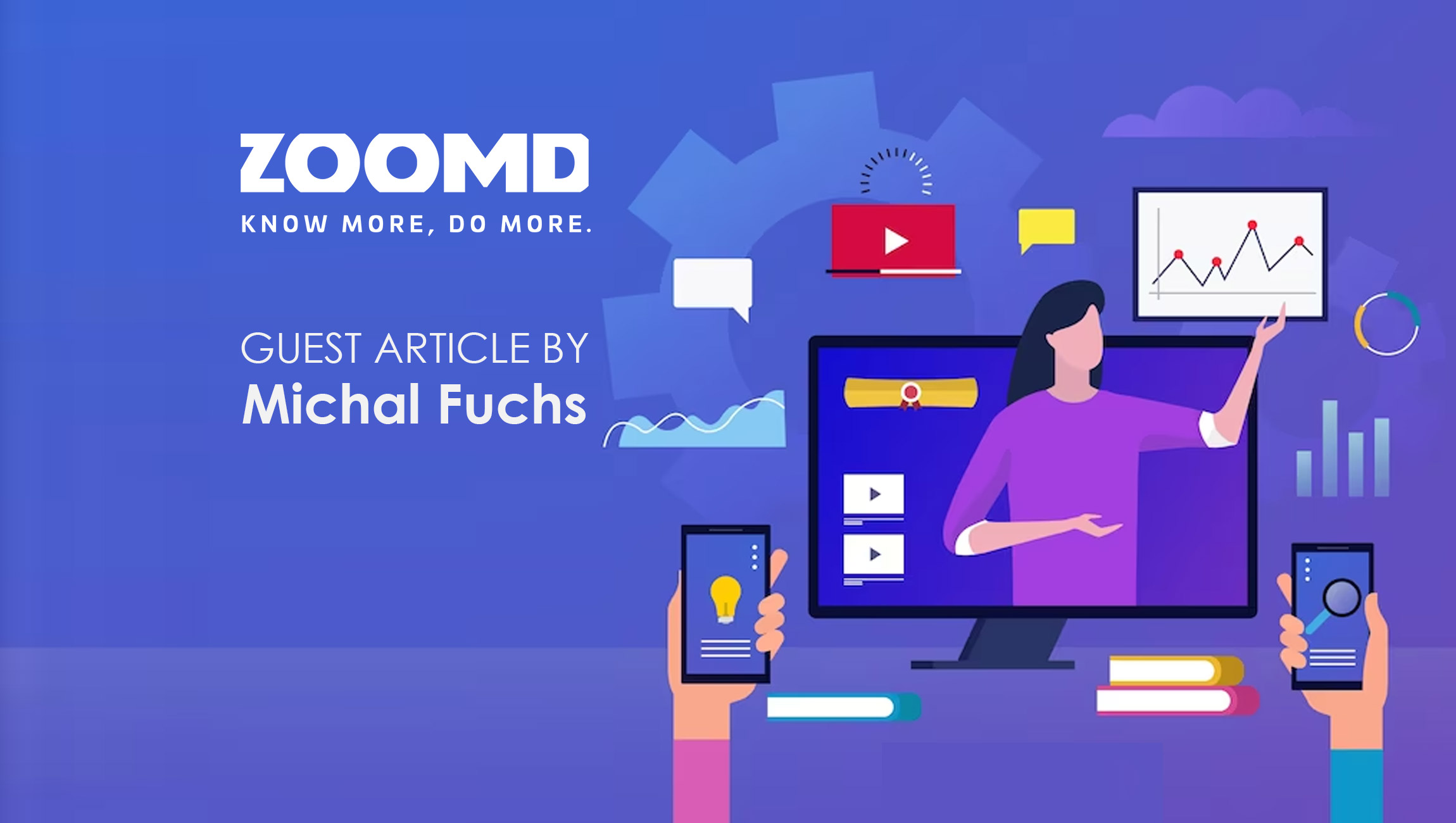Celia Fleischaker, Chief Marketing Officer at isolved talks about the state of modern B2B marketing amid changing market dynamics in this MarTech chat:
_________
Celia, take us through your marketing journey and tell us about the high points of being a repeat CMO and leading so many marketing teams over the years…
Marketing has always been a passion of mine. I have been in B2B technology marketing for 20+ years and recently joined isolved as CMO. Before isolved, I was CMO at B2B software companies Verint, PROS and Epicor, experiencing both public and private equity ownership.
Epicor is where I really grew up as a marketer with roles ranging from field marketing, product marketing, corporate marketing, and eventually CMO. Moving around the marketing organization allowed me to gain experience in each of those core roles. I’m confident that these experiences have provided me an invaluable foundation to build on at isolved which is in hyper-growth mode. I’m excited to join isolved at a pivotal time when companies are recognizing the opportunity that comes with providing innovative human capital management (HCM) technology for HR teams to use to improve the employee experience; making them a strategic partner to the business as they drive better talent acquisition and retention strategies.
In terms of high points, it has been about the teams that I’ve had the good fortune of working with. I’ve worked with amazing individuals at each of the organizations where I’ve held the CMO role. While it takes time to settle in and learn the ropes, I find that each change brings with it the opportunity to learn more about what is possible when it comes to marketing and the industry in which we work.
How can today’s CMOs help their brands drive better marketing performance and pipeline for business growth?
The path to success for marketing can vary. As a marketing leader, I always want to understand how marketing success is defined by the CEO and or the head of sales. Is it about brand awareness, pipeline growth, or something entirely different? Every company is different. And once there is agreement on the definition of success, it is about defining the metrics that matter and align to those predefined goals. So, for example, if success is about pipeline, is it about new logos or current-customer expansion? Is the company most concerned with quantity, quality, or velocity? Gaining alignment about what defines success and how to measure it is critical.
Can you talk about the current state of B2B tech marketing and what marketers across the hierarchy are meant to focus on today versus a few years ago: how is today’s marketing department and role across the levels changing?
One of the things I love about B2B tech marketing is how dynamic it is. Traditional CMO roles incorporated corporate marketing, product marketing, and demand. Recently, many CMO roles have expanded to include a focus on experience initiatives for employees, customers and partners. In the marketing organization at isolved, for example, we’ve added an experience team – matching our ethos that employee experience (EX), customer experience (CX) and partner experience (PX) are very closely aligned.
As tech companies realize the difficulty in attracting and retaining talent, for example, they are placing an increased emphasis on employee experience. Marketing is partnering up with HR leaders to mature how companies approach employer branding and improve employee engagement. More and more, companies are approaching how to improve EX with a marketing lens.
Similarly, there is an increased emphasis on CX and PX. Like ours, many marketing teams have added roles that focus on measuring and improving both. And marketers are realizing the value in working cross-functionally to drive a better experience for customers and partners. There tend to be silos of customer and partner data available across the organization. Marketing can play a key role in pulling that data together and creating a much deeper understanding of customers and partners – enabling a company to improve retention and expansion opportunities.
Marketing Technology News: MarTech Interview with Eric Sandberg, Managing Director at Dynata
We’d love to hear about some of the marketing strategies (ABX / etc) that you have focused on over time to boost growth and also, about the martech that has helped support it.
With the tech that is available today, CMOs have a great opportunity to provide value to the business. From a pipeline perspective, the availability of intent data to give marketers a view into what interests their prospects and customers is immensely valuable. Then, taking that data and using it to drive programs across the business – new logo sales, expansion, retention.
I’m also seeing a lot of marketers work with other areas of the business to drive more impact. They are working with HR, customer, and partner leaders to develop programs that will build greater retention and uncover advocates. Marketers are going beyond surveys to use technologies like speech, text, and predictive analytics to deepen their understanding of these critical relationships.
When it comes to balancing martech adoption and training in martech (read; getting the team to learn about AI and data processes for instance), what are the processes you follow?
There is no question that data and AI have a huge role to play when it comes to driving success for CMOs. Making it more complex is the pace of innovation in the market for AI-based technologies. With so many martech vendors incorporating AI in their solutions, a great place to start is a survey of your current martech stack to understand where AI is incorporated today and where your vendors plan to use it in the future.
Beyond existing martech, teams should research and network to understand how peers are using AI and where they are seeing benefit. Further, a marketing team’s AI adoption doesn’t need to be transformational overnight. An AI roadmap (now, near, next) can help reduce complexity to make incremental changes based on team and company goals. With AI, it is critical to include your IT teams in the process to make sure the tools adhere to security and privacy safeguards as well as consider necessary integrations.
Can you comment on the growing use of AI in digital marketing and how you see it impacting the future of marketing and martech as well as channels like email, social media, video marketing and more?
AI is one of the most exciting areas in B2B marketing. It can be used to drive deeper understanding of prospects, customers and partners which leads to more effective content and campaigns.
It has implications that are far reaching. I think most agree that it will have a dramatic impact on content creation – both written and video content. It can help marketers develop a level of personalization at scale that we haven’t been able to achieve in the past.
Take us through five must-dos you feel every B2B marketer and B2B advertiser needs to follow on a daily basis.
- Make time to drive the business. Each day comes a lot of potential tasks that can absorb all of your free time. Make sure you block time to think about change and improvement – things that will help you drive the business forward.
- Deepen your understanding of your customers. The more you understand your customer, the better you will be as a marketer. Engage in content that will help you learn more about your customer. Read a new customer case study, or better yet, talk to a customer about their challenges and what is valuable to them.
- Dedicate time to manage talent. Set aside time to think about your high-performing and high-potential talent. Spend time thinking about how you develop and retain the talent you have as well as building a talent bench for when you need to hire.
- Review the metrics. While metrics might not shift daily, consider dividing up your week and focusing on a different set of metrics each day (e.g., Mondays are pipeline, Tuesday are brand, etc.).
- Scan what the competition is doing. Take a few minutes to check out your key competitors. How are they messaging? What are they saying to the market? What are they doing that is similar/unlike your marketing?
Marketing Technology News: Why Marketers Need to Pay More Attention to Customer Data Privacy
isolved is a trusted HCM technology leader, providing a combination of software and services to meet the needs of today’s People Heroes – HR, payroll, and benefits professionals.
Celia Fleischaker is a proven executive with 20+ years of experience developing go-to-market strategies for business-to-business technology organizations. She has successfully managed global marketing organizations of publicly and privately held software companies with her latest role as CMO of isolved, a leader in HR software and services. Celia’s extensive experience driving organic growth through expansion of channels, marketing programs and product lines is taking isolved to its next stage of growth.
Missed The Latest Episode of The SalesStar Podcast? Have a quick listen here!
Episode 187: Building End-to-end Digital Campaigns that Boost ROI: with Curtis Tingle, EVP and CMO at Vericast
Episode 186 Using Email Signatures to Drive Marketing and Sales with Carol Howley, CMO at Exclaimer
Episode 185: Sales Improvements That Can Help B2B Teams Boost Growth with Jason Fitzgerald, SVP, Solution Network at OneStream Software












